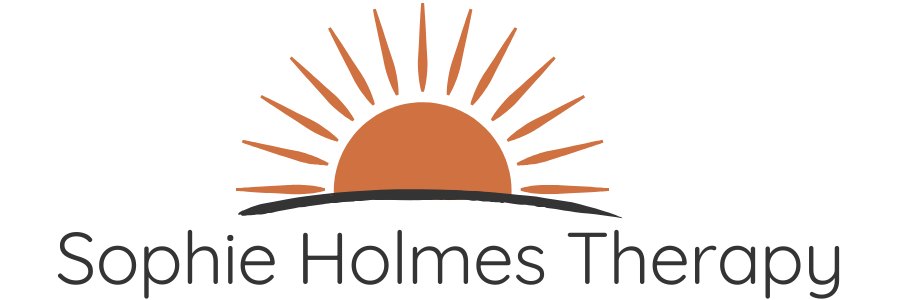FAQs
-
Clients find that they benefit from between 4 to 8 sessions. However, everyone's journey is unique, and some clients with more complex needs might find they need 12+ sessions.
You will be given tasks to work on between sessions. The more effort you put into these tasks, the quicker you'll start to see positive changes.
-
CBT, which stands for Cognitive Behavioural Therapy, is a type of talk therapy that can assist in recognising and replacing unproductive patterns of thinking, feeling, and behaviour with more constructive ones. This method concentrates on addressing present difficulties rather than delving into the past.
According to the National Institute for Health and Care Excellence (NICE) and the NHS; CBT is a recommended treatment for anxiety and depression, and it has been proven to be effective in treating a variety of conditions such as phobias, panic attacks, stress-related issues, and sleep problems.
CBT is a highly collaborative approach that involves working as a team to understand the thoughts, feelings, and behaviours that contribute to the issues. CBT can be likened to a skills-training program, where the goal is to acquire the abilities required to manage one's problems.
-
Cognitive behavioural hypnotherapy (CBH) is an advanced form of therapy that provides powerful techniques to address a broad range of emotional and physical issues. By integrating traditional cognitive behavioural therapy techniques with hypnosis, this approach is designed to help you manage your problems by altering your thought patterns and behaviors in a positive way. Research has shown (Kirsch et al.) that CBT was more effective when used with hypnosis.
Unlike other forms of therapy that focus on past traumas or events, CBH concentrates on current issues. During hypnosis, we enter a state of heighten suggestibility that allows us to accept positive, helpful suggestions.
-
Hypnosis is characterised as concentrated focus on a main idea. The act of being hypnotised is something you do to yourself rather than something I do to you. Your response will be based on your willingness to engage in the process. The whole time, you'll be in charge. You won't fall asleep. You will be conscious throughout and have the option to come out of hypnosis at any time.
-
It works by getting you to confront and change negative thoughts, feelings and behaviours. The purpose of CBH is to inform you of your symptoms and the mechanisms underlying your problems. The interventions are made to be educational so that skills can be picked up and used at any time. Newly acquired self-awareness and knowledge will make you feel more empowered and enable you to apply your news skills in your everyday life, enhancing your overall wellbeing.
-
The process of hypnosis involves reprogramming irrational and unproductive beliefs with rational and constructive ones through focused attention while in a state of relaxation.
Relaxation techniques help you enter a relaxed state in which your conscious mind is highly focused and open to accepting suggestions more readily.
-
The simple answer is no. You will neither be unconscious or out of control while in hypnosis. You will retain full control and are free to speak if you choose. You have the power to accept or reject any suggestions provided during the session. The state of hypnosis is one of collaborative effort between you and the therapist, where you both work towards a common goal.
-
You may have attempted various relaxation or mindfulness techniques in the past, such as those practiced during a yoga class, and found it challenging. It's common for people to encounter difficulty with relaxation, struggling with letting go of their thoughts, and believing that they simply can't do it.
There are several ways to trigger the body's natural relaxation response, some of which involve physical techniques such as breathing exercises, while others employ imagination or hypnosis. Hypnosis, in particular, is a skill that can be taught to any individual.
Since everyone is unique, some individuals may find one approach easier than another. It may require being compassionate towards yourself and giving yourself adequate time to master the skill. Together, we will collaborate to identify an approach that best suits your needs.
-
CBH can be an incredibly effective tool to help a variety of concerns and many people find it very helpful. However, hypnotherapy is different for everyone and the effectiveness varies from person to person. CBH is a collaborative effort between the therapist and the client and while I will always strive to offer my best assistance, I cannot guarantee successful results. Each individual is unique, and the outcome of hypnotherapy will vary. Ultimately, your success in achieving your desired outcomes depends on your own commitment and active participation.
-
If you are late for a session then I may not be able to give you the full session time. The full session fee will still apply.
-
In my business, I value the time I spend with clients and strive to provide the best service possible. To ensure fairness and efficiency, I have a strict 48-hour cancellation policy:
If you need cancel a session and give more than 48 hours notice there is no fee.
If you cancel with 24-48 hours notice there is a fee of £30
If you cancel giving less than 24 hours notice the full session fee will be charged.
However, I am committed to meeting my clients' needs and will make every effort to accommodate them by adjusting appointments whenever feasible to avoid any charges.
